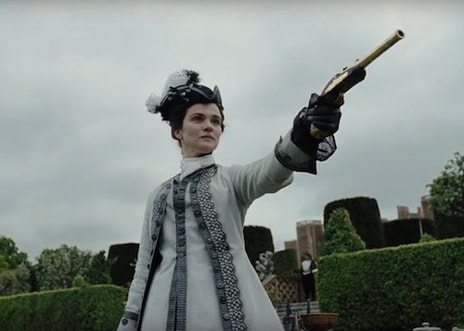
More Best of 2018 countdowns:
Best Films of 2018
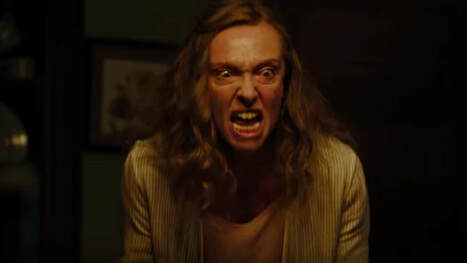
The year's biggest performance goes to Toni Collette in Hereditary, a film well-calibrated to Collette's histrionics. Ari Aster's horror film asks so much of Collette's lead, giving her monologues, gonzo reaction shots, physical beats, and pure sub-verbal emoting, and she is superb at everything. As Annie Graham, the daughter of a recently deceased mother and a reluctant mother herself, Collette embodies the titanic life changes that Annie goes through over the course of the film. Just when the viewer thinks she's charged her way through her best scene, another one emerges and somehow, she's topped herself for passion and verve.
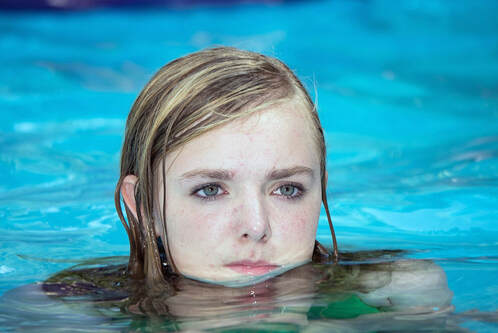
All the um's and ah's and fumfurs that escape Elsie Fisher's mouth in Eighth Grade are apparently written into Bo Burnham's stunning script, but Fisher makes every noise seem natural. As Kayla Day, an introspective middle schooler on the cusp of graduation, Fisher is both a 14 year old girl in every era and a specific to this singular one, universally recognizable for her teenage self-doubt and anxiety but stuck with technological advances and innovations partially designed to exacerbate these flaws. As much a horror film as it is a comedy, Eighth Grade centers all of its events around Kayla's interpretation of them, putting the viewer in her head as she attempts to break out of her bubble before everyone heads off to high school. Plenty of awkward and even tense scenarios ensue, and Fisher's vulnerability has the viewer rooting for her through each of them.
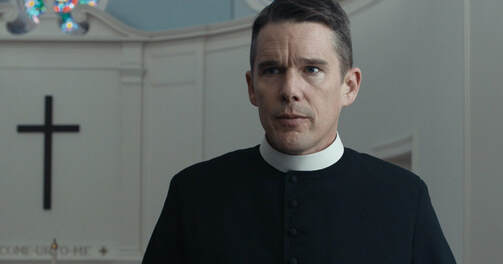
Between his magnificent turn in First Reformed and his enrapturing direction of Blaze, Ethan Hawke might've had the best 2018 of anyone. Where Blaze finds moments of idyllic joy, however, there's no respite for First Reformed's Ernst Toller, embodied by Hawke as another of Paul Schrader's God's Lonely Men. A preternaturally depressed priest who gloms onto apocalyptic environmentalism, Toller is most affecting when he's getting closer and closer to some form of transcendence, whether it's a simple Japanese dinner or a magical experience with widowed parishioner Mary (Amanda Seyfried). Hawke's face pauses to potentially allow goodness in, but then he spots the rabid industrialist in the sushi restaurant, or tendrils of oil infect the ocean waves that he imagines himself and Mary soaring over. The possibility of something good fades away, and Hawke crumbles, unable to escape his despair.
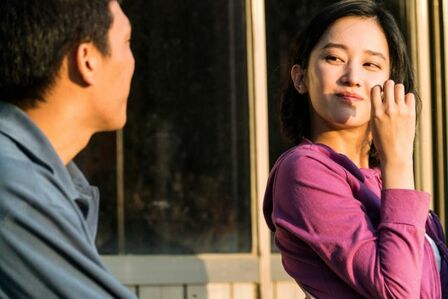
As the female leg of the love triangle in Lee Chang-dong's Burning, Jeon Jong-seo must demonstrate her appeal to two very different but equally unappealing men. She does so with a gusto that some might call manic pixieishness, but the film has too much respect for her character to be able to dismiss her role as that overused trope. Her Shin Hae-mi capital-w wants in a South Korean society too repressed to ever allow its inhabitants to say what they're thinking. She's curious and wholly un-self-conscious, mystical and artistic and given to a hunger that is too big to be fully explained in her own words. The tragedy of Burning is how little she's appreciated by the two men in her life, one of whom treats her like a parlor trick and the other too cowed and self-loathing to do anything but criticize her. Burning is a deep and complicated film, but Hae-mi's appeal as a unique and valuable person, embodied by Jeon, is as uncomplicated as it gets.
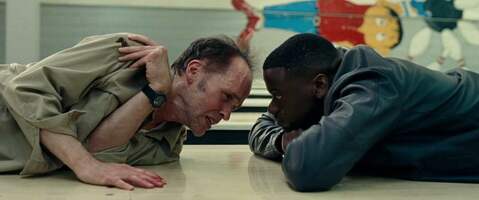
The best villain of the year belongs to Daniel Kaluuya's Jatemme Manning of Widows, a dead-eyed enforcer for his more respectable brother. Kaluuya plays Jatemme as a predator, literally circling his prey in one of his more memorable scenes, though each one sears an imprint onto the viewer's brain. His dead eyes and vicious sadism make his absence felt, such that when he hasn't been onscreen for awhile, dread starts to accumulate in anticipation of his next atrocity. Kaluuya has great fun in the role, relishing the opportunity to inhabit somewhere close to the bottom of the morality scale in a film that gives him plenty of competition.
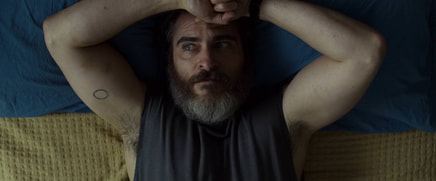
Joaquin Phoenix's incredible 6-year run continues with Lynne Ramsay's You Were Never Really Here. From The Master through Her to Sisters Brothers, Phoenix has made himself into one of the most intense and versatile actors, and You Were Never Really Here is one more argument in his favor. As a rescuer of sex-trafficked young women, Phoenix's Joe might take some satisfaction in his work, but instead, his life of experiencing and doling out violence has left him wholly broken, hanging onto existence if only to take care of his elderly mother. Bulked up for the role, Phoenix barrels through set-pieces that Ramsay only shows pieces of, reframing cathartic violence as one more cinematic exaggeration. The psychic agony that Phoenix wears on his face is too pervasive to be relieved, too heavy even for his broad frame.
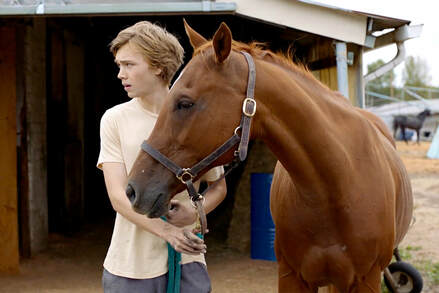
Andrew Haigh's first American film, Lean on Pete, rests on the narrow shoulders of Charlie Plummer. Like Elsie Fisher in Eighth Grade, much is being asked of a young actor and they are responding with attention-grabbing confidence. Plummer's character, also named Charlie, is, with his ne'er-do-well father, barely keeping his head above the economic waters, and he finds a way to fulfill a passion and raise some funds by working with horses at a ramshackle local track. There, he falls in love with the titular horse, a sprinter with only a few sprints left in him. Plummer's face is achingly expressive, but the character lacks the vocabulary to put the plaintiveness in his eyes to words. As things get more and more dire for Charlie, that plaintiveness becomes the stakes. If he loses something so affecting, or trades it in for coldness, something real will have left the world.
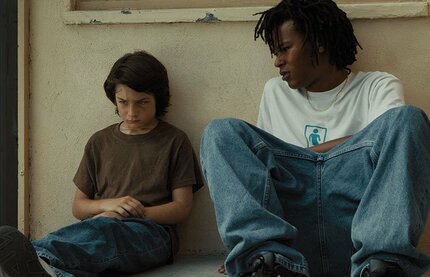
Jonah Hill's directorial debut mid90's is all over the place, by turns perceptive and tranquil and tone deaf and corny. The most unimpeachable aspect of his effort is his discovery of first-time actor Na-Kel Smith who plays Ray, a teenage mentor for Stevie, the film's pre-teen protagonist. At an early age, Ray knows exactly who he is, what he wants, and how to get it, and that certainty has given him the wisdom that the other characters in his crew sorely lack. No other character in mid90's is capable of having an honest conversation with Stevie, and it's Smith's charisma that draws Stevie towards him and his sincerity that makes these conversations stick. He's the role model that every boy hopes to have, and though his role is in support of Stevie, Smith's Ray is the character that the viewer most wants to succeed.

Returning to the duo that helped her generate one of her best performances, Charlize Theron teams back up with Diablo Cody and Jason Reitman in Tully, an honest portrayal of pregnancy and motherhood that becomes much more by the time credits roll. Theron's Marlo, mired with her third child in a house that she bears the brunt of the responsibility for, loves her family but is overwhelmed by them. When her wealthy brother springs for a night nanny, Marlo's pride-centered refusal gives way to acceptance of what's a standard benefit in many countries but an extravagance in this one. Theron capably plays exhaustion and frustration, and she shines brightest in tiny moments when someone is making inappropriate small talk about her body or her husband is making some aside about the state of the house. Theron takes in how she'd like to react in these moments and then reacts how the offending party expects her to, her only rebellion the withering, momentary look she displays and quickly puts away.
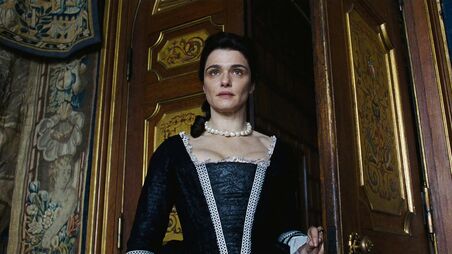
Yorgos Lanthimos, having made the transition from Greek films to English-speaking films, needed an equivalent of Greek actress Angeliki Papoulia, someone perfectly suited to the unique tone and cadence and bearing of a Lanthimos picture. He's found that person in Rachel Weisz, who stole the show in The Lobster and does again in The Favourite. As Sarah Churchill, an intimate advisor to Queen Anne (Olivia Colman), Weisz brims with confidence, earned not only by her elevated station in imperial England but by simply being better and smarter than everyone in the room at any given time. In The Favourite's war for Anne's affections, the film implies that Sarah and rival Abigail Masham (Emma Stone) are going to be matching wits and maneuvers with each other for a good chunk of the second act, but Abigail is so credibly outmatched by Sarah that this is quickly shown to be impossible, forcing Abigail to resort to dirty tricks. Even in defeat, Sarah is indomitable thanks to Weisz's steel-spined presence.
 RSS Feed
RSS Feed